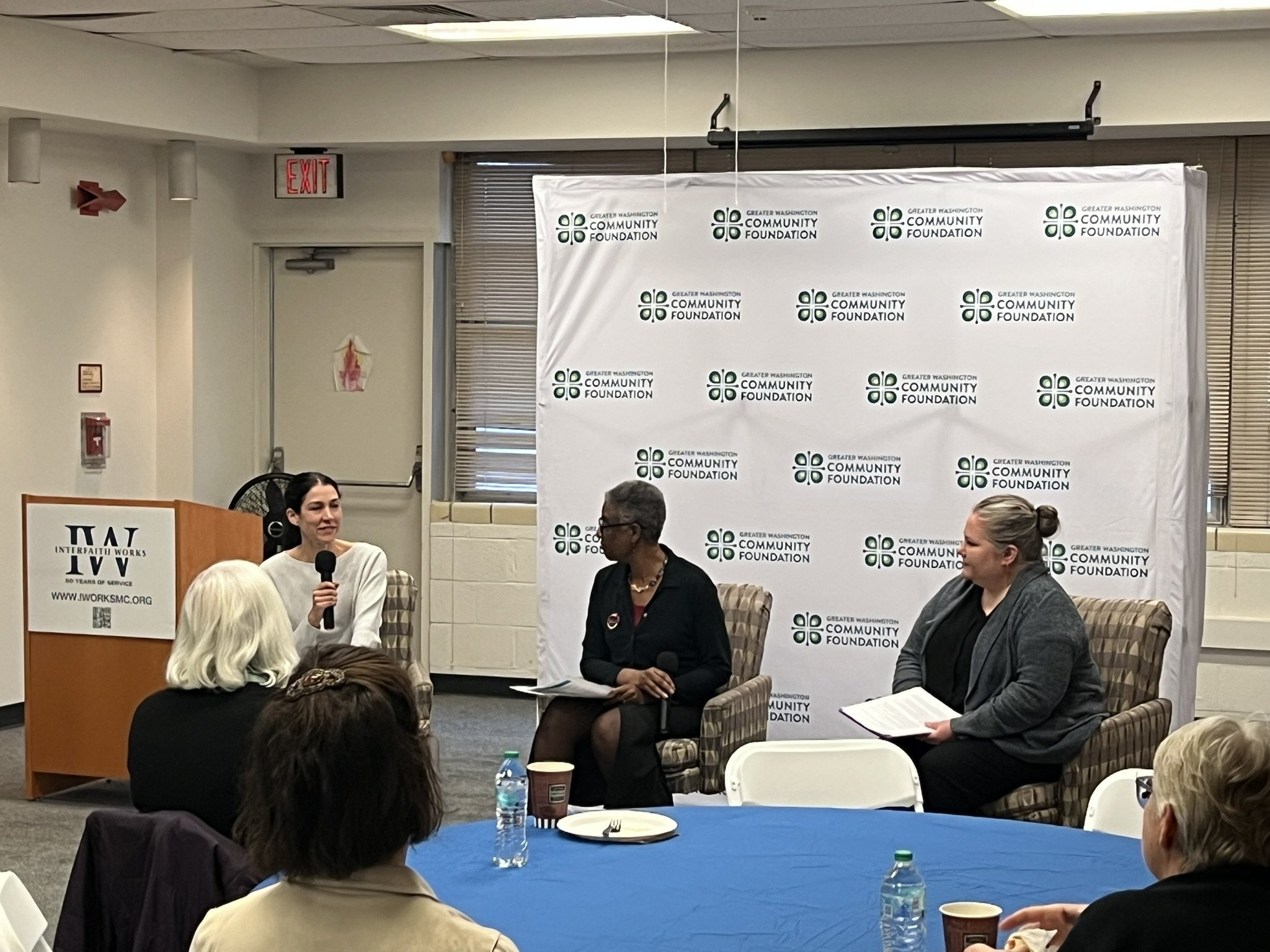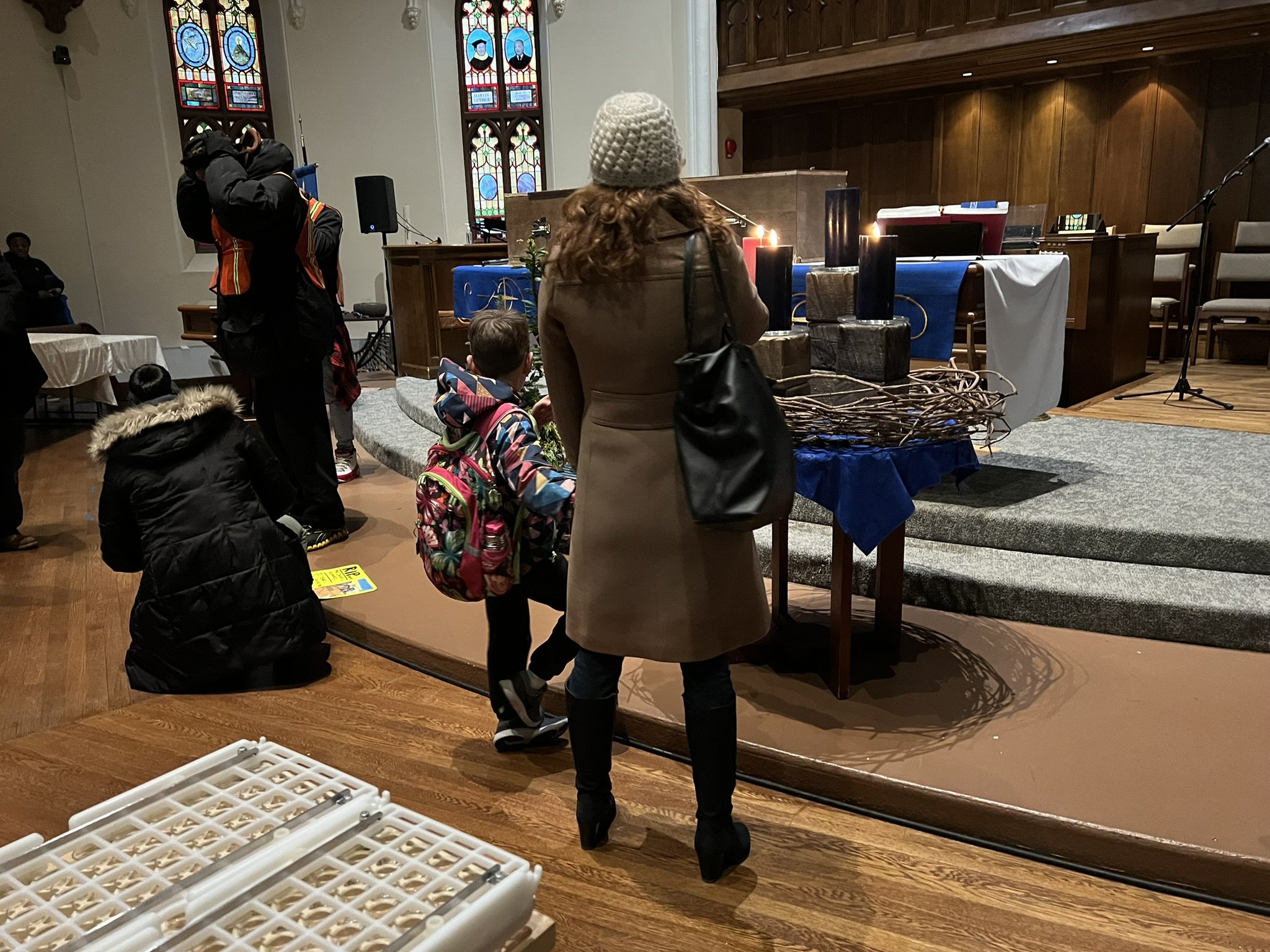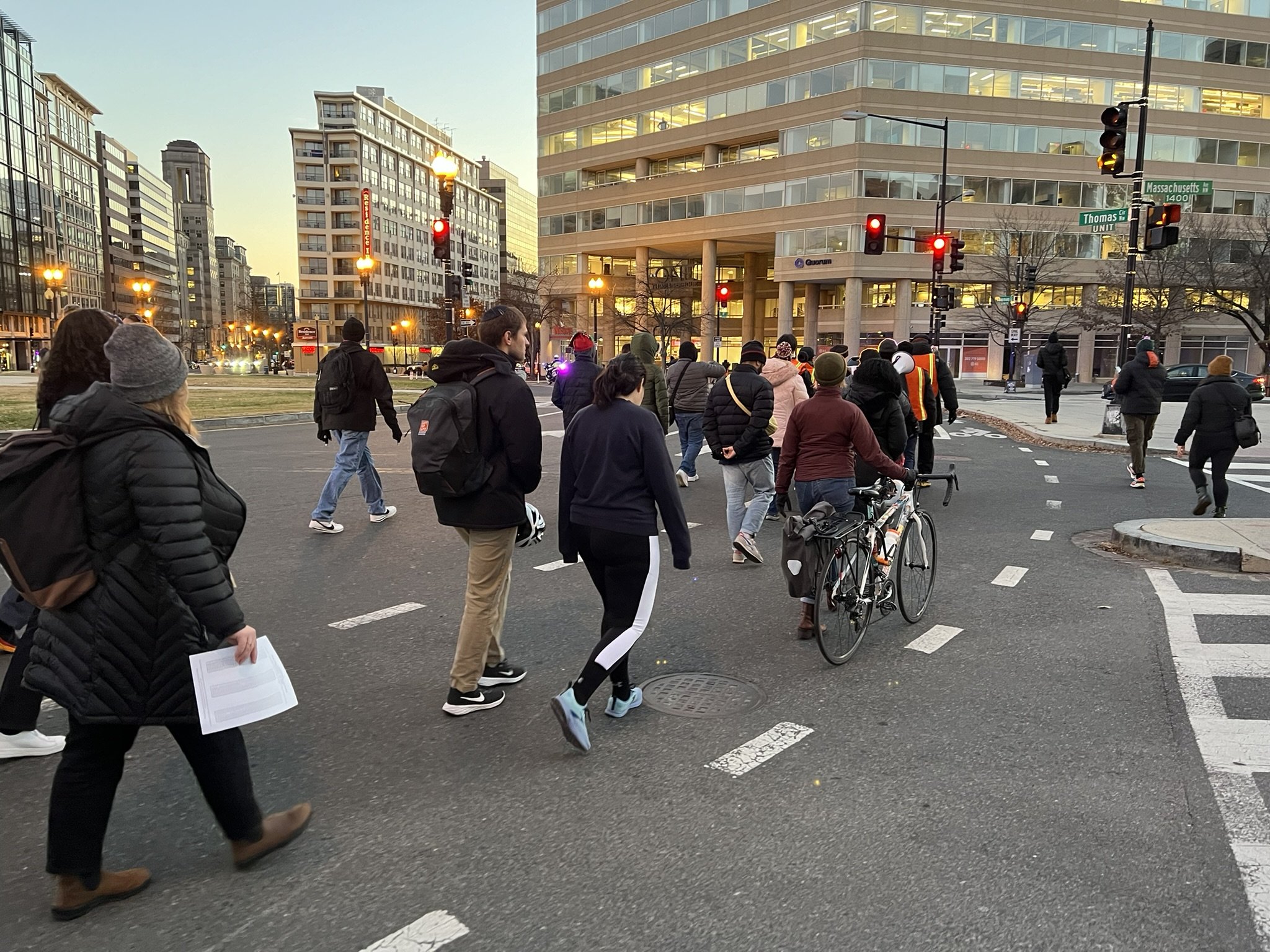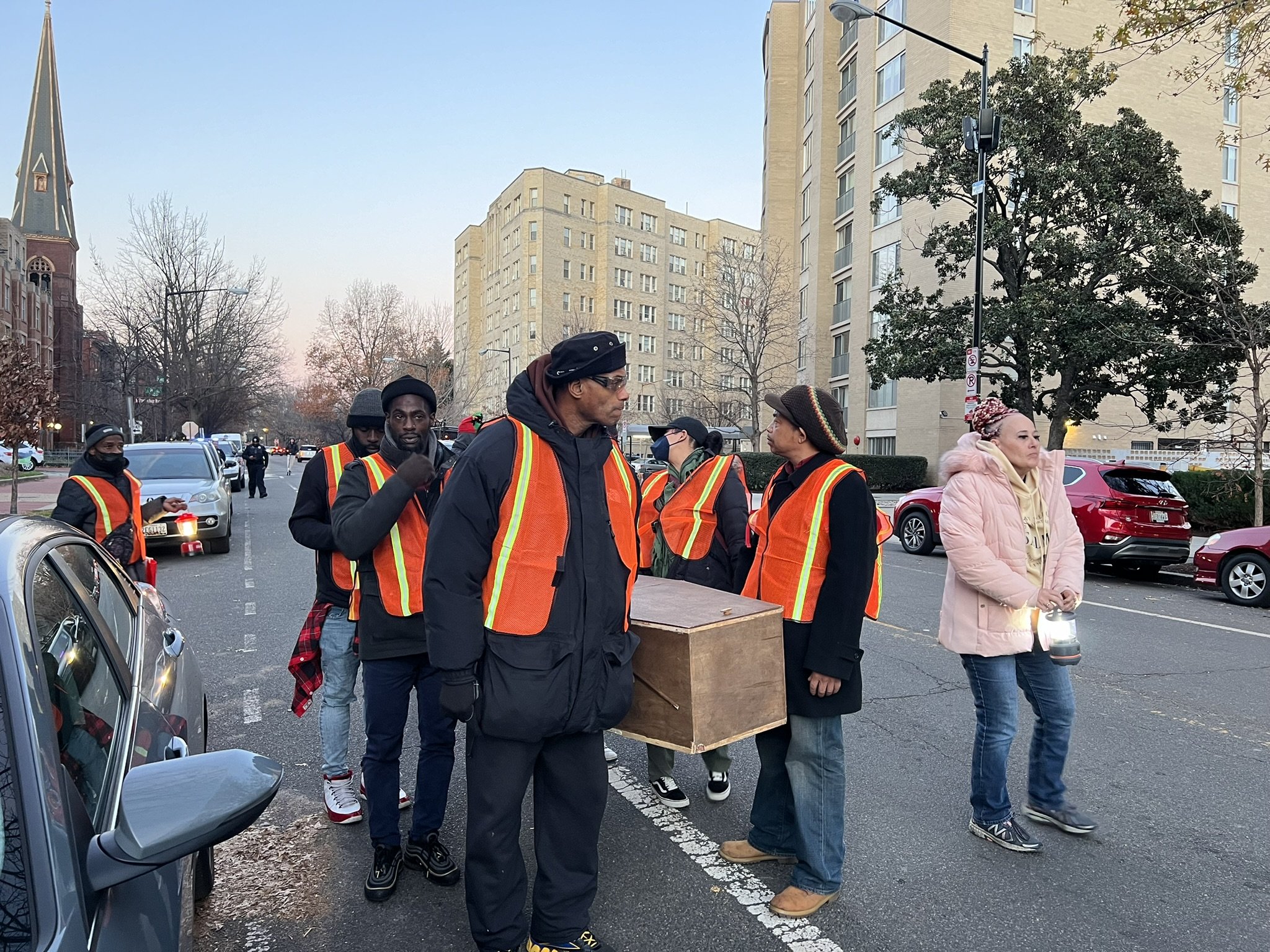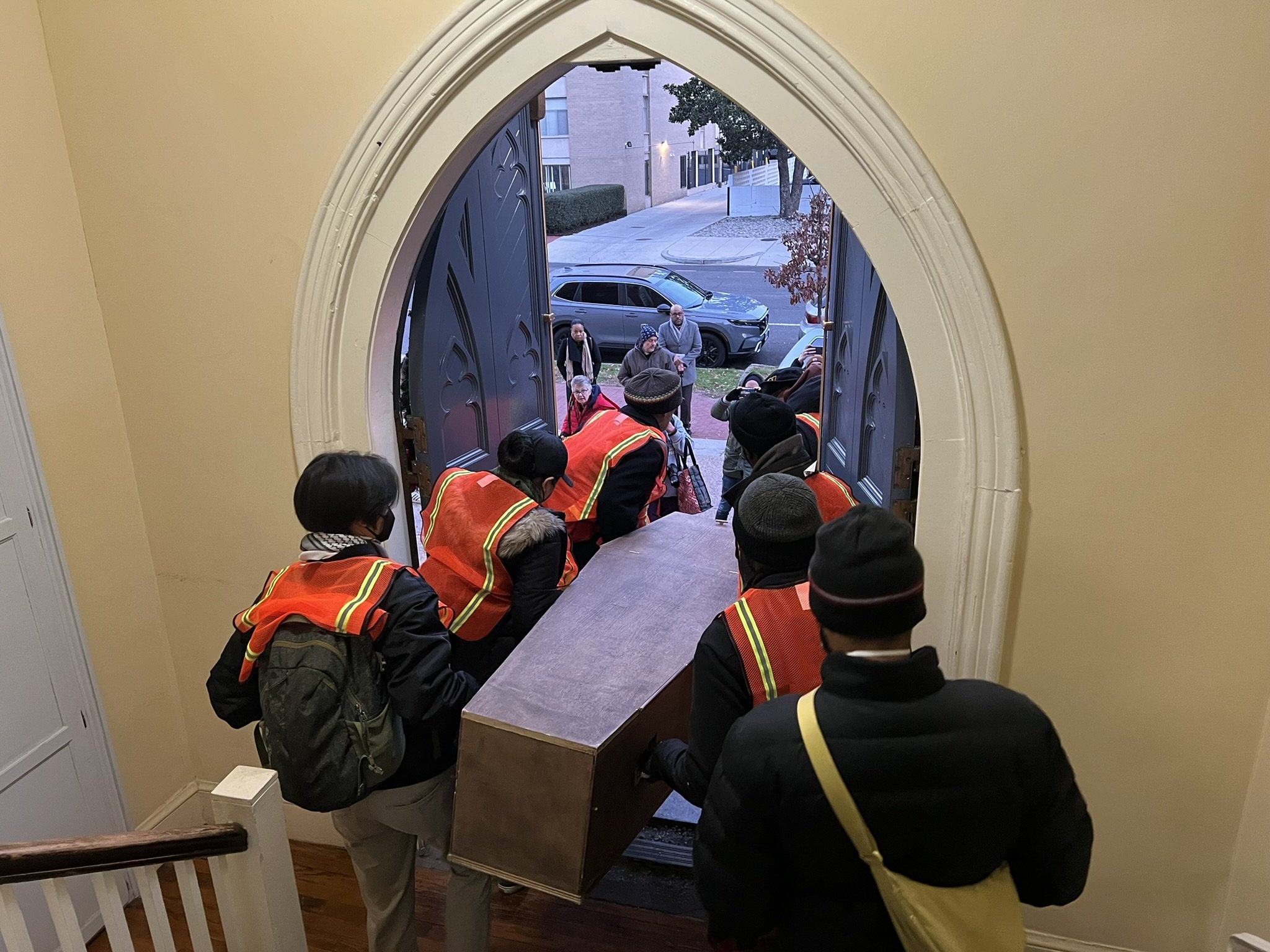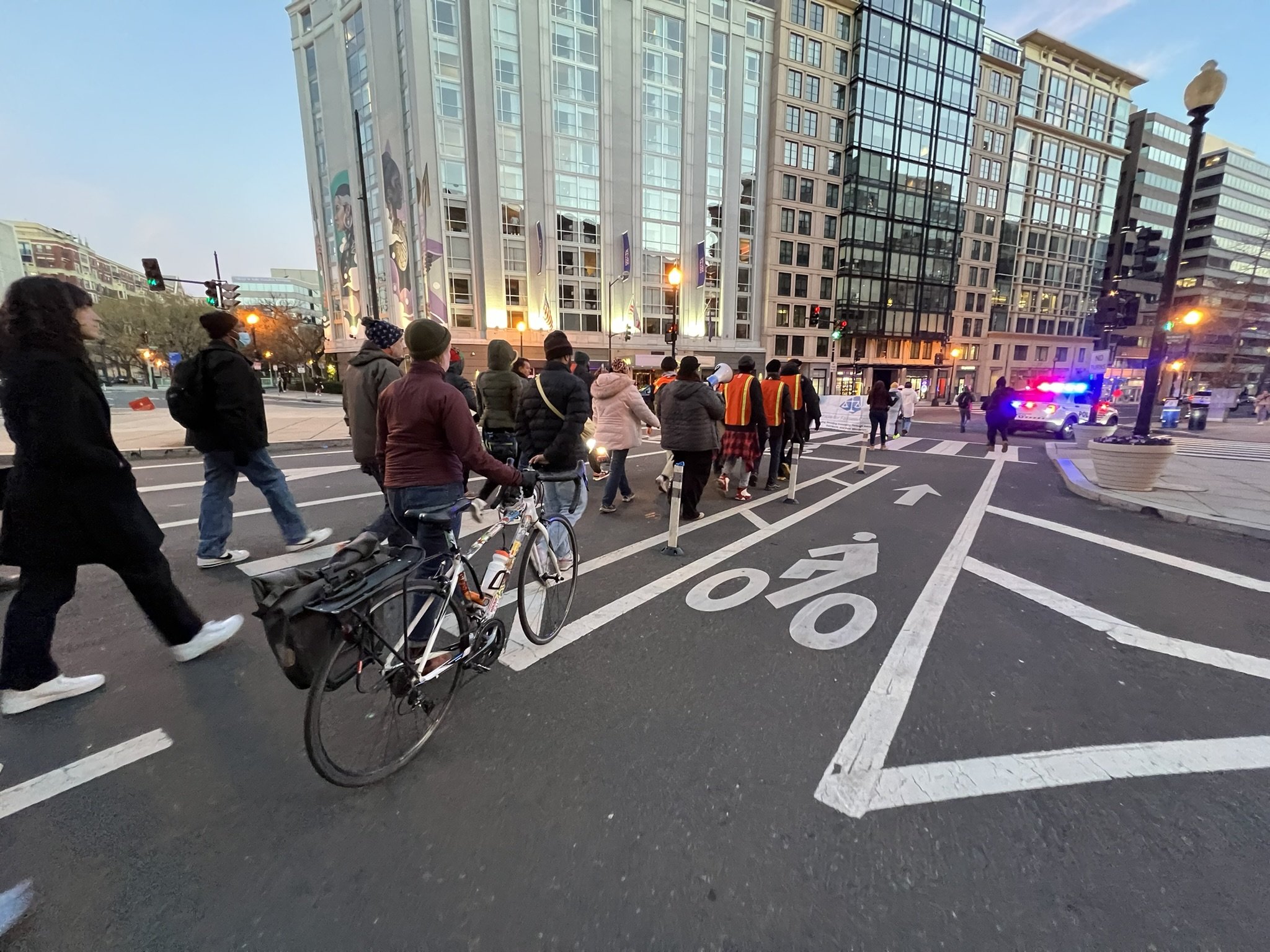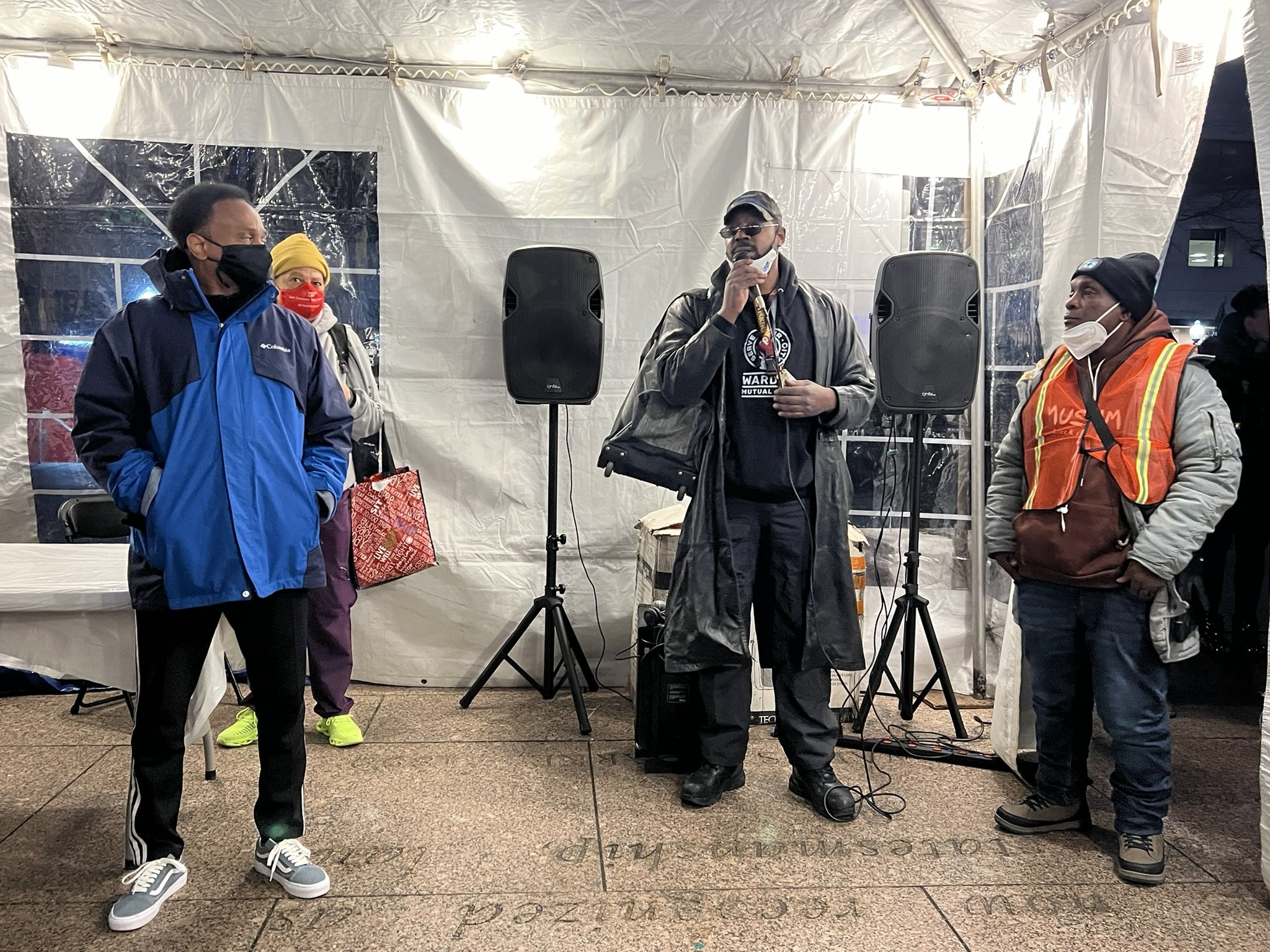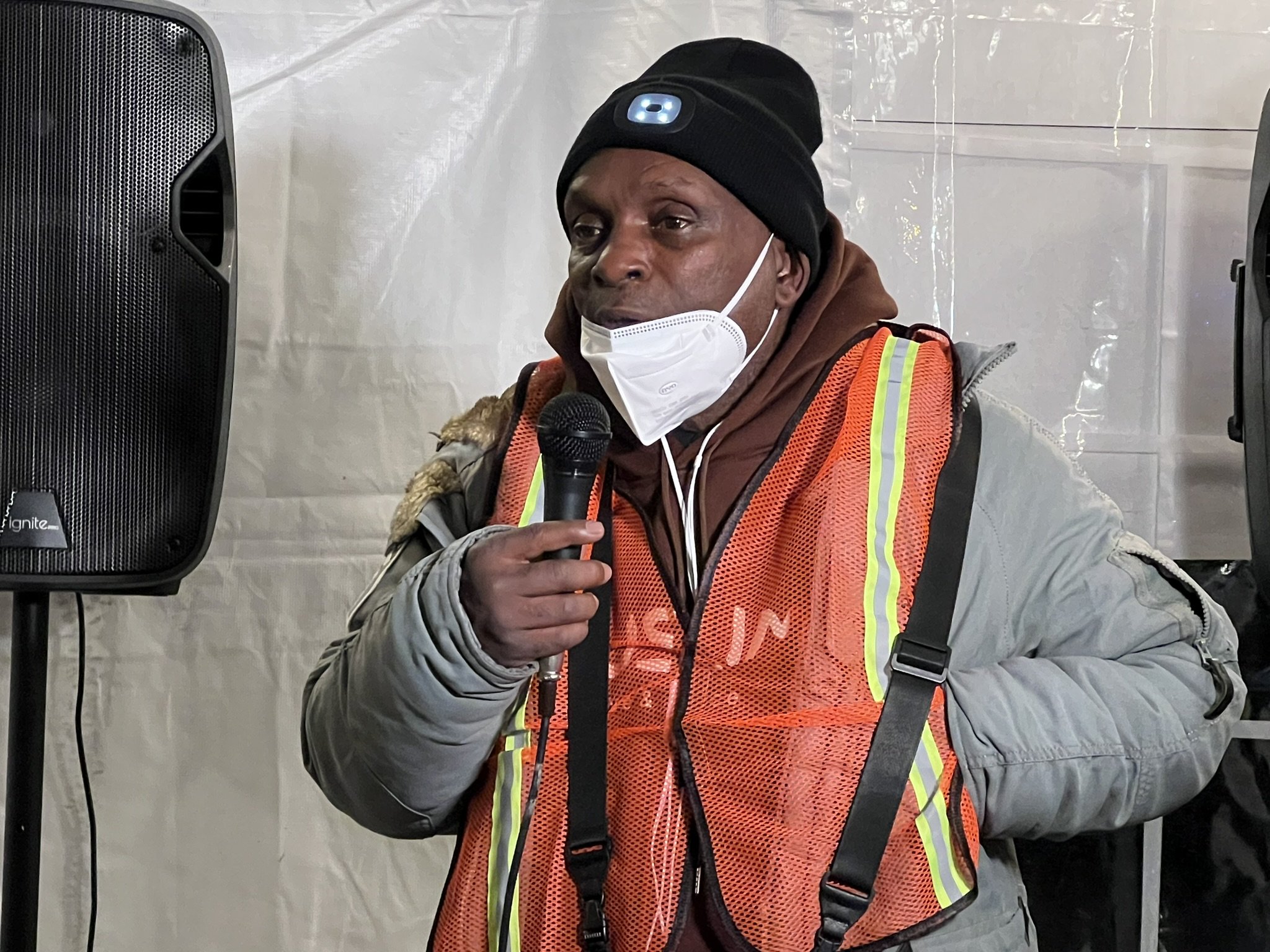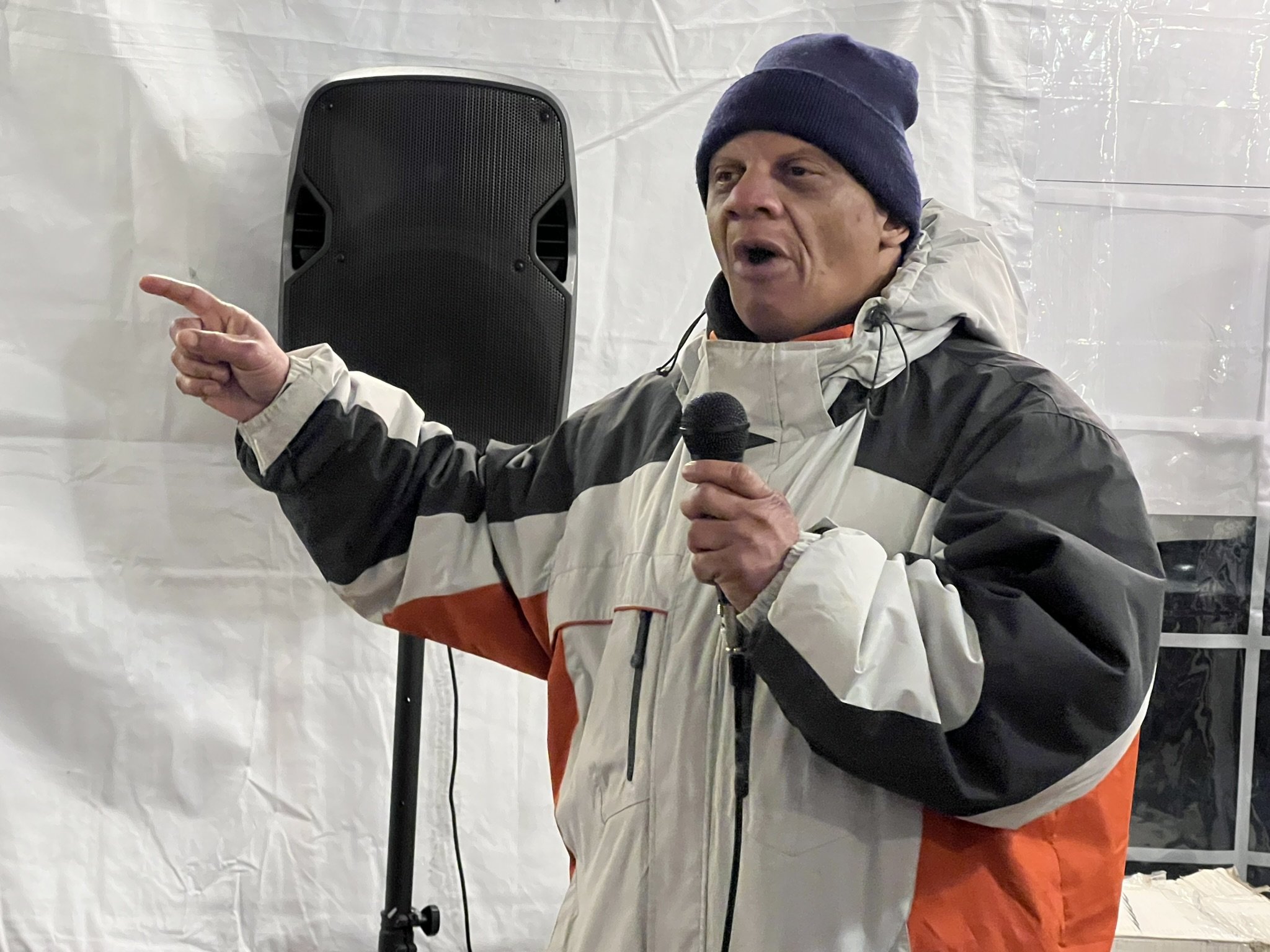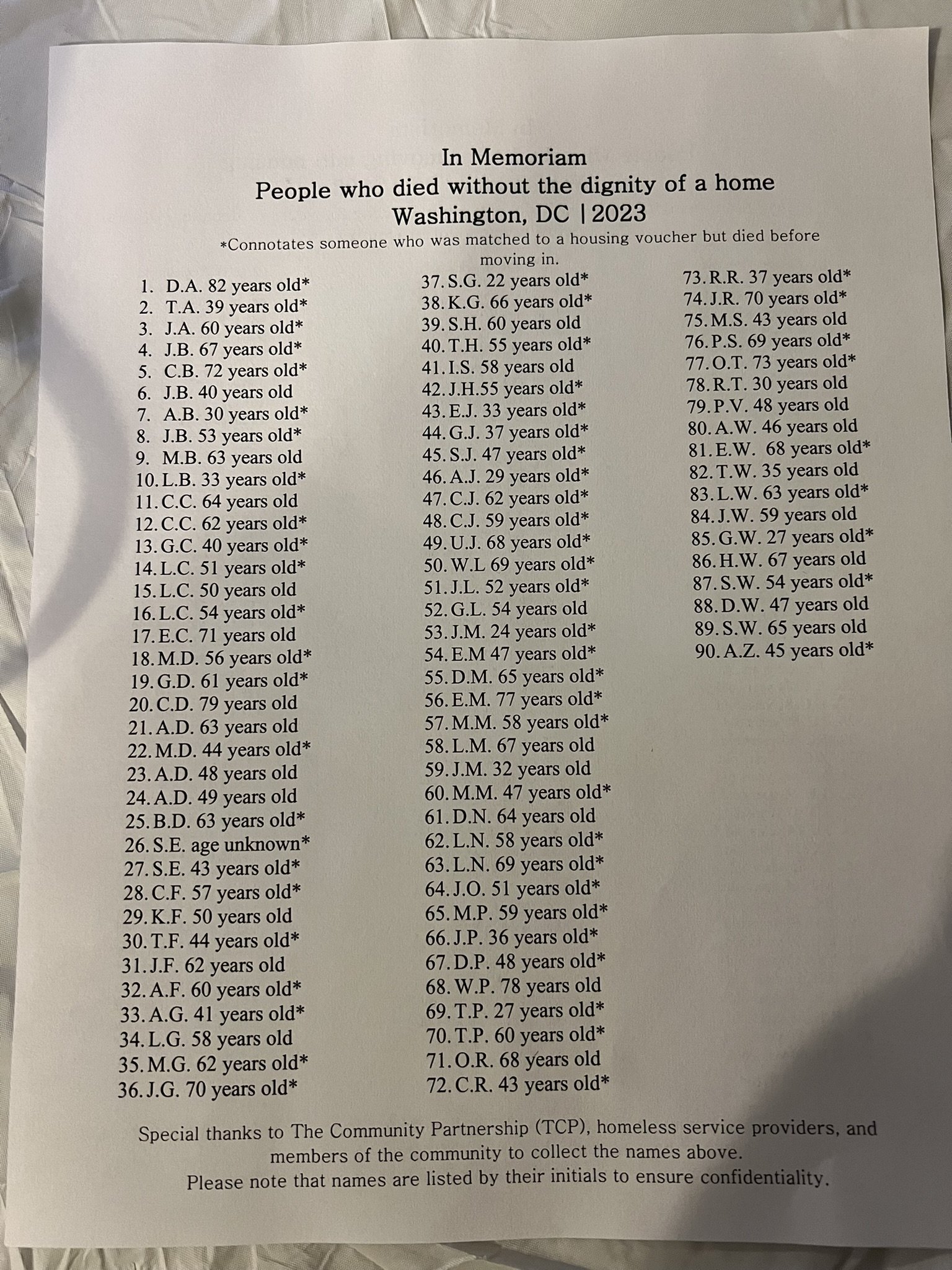We invite philanthropic, business, nonprofit, and faith leaders to sign on to the statement below to join us in supporting DC’s right to self-governance and investments in proven community-based solutions.
Recent federal actions targeting DC – including the deployment of National Guard troops, seizure of the DC Metropolitan Police Department, and withholding of over $1 billion in local funds – threaten our city’s public safety and critical services as well as our autonomy and right to self-govern, authorized by the United States Congress.
Each year, as many as 27 million visitors feel safe enough to enjoy our city’s outstanding cultural assets and historic institutions. But our city is more than malls, museums, and monuments. It is a city of over 700,000 residents, the vast majority of whom are thriving, resilient, and working every day to be good neighbors and to strengthen our communities. DC is a well-managed city with a $22 billion dollar budget, which rivals some state budgets.
Over the past few decades, our city has made meaningful and significant progress in housing, public safety, economic development and more. We all want to be part of a safe DC where everyone has a chance to thrive in a welcoming environment. But these new actions will roll back considerable progress made to improve community safety and decrease homelessness; and they are an abhorrent example of unnecessary federal overreach.
As the region’s philanthropic, business, nonprofit, and faith leaders dedicated to strengthening our community and supporting all residents, we believe that any strategies and investments from the federal government should build on progress made and what is working to address community needs:
The people of DC deserve the same right to self-governance and self-determination as the residents of the 50 states. Washington, DC is much more than just a tourist attraction and the nation’s capital. It’s a world-class city, with hundreds of diverse and bustling neighborhoods, state-of-the-art commerce, a thriving arts scene, and a world-class restaurant culture. DC residents are real people, in a real city living real lives. We’re coders, nurses, educators, salespeople, and more, driving one of the most vibrant local economies in the nation. Washingtonians’ local taxes pay for all our city services, and we have the right to control our local tax dollars like taxpayers in every other U.S. state and city. Washington is a distinct territory and home to a population that goes back generations, with a unique personality and culture just like every state in the nation. We deserve to self-govern our city as guaranteed by the 1973 Home Rule Act without federal government overreach.
Everyone deserves to live in safe neighborhoods. Safety matters to everyone, but unprecedented federal overreach and ‘tough on crime’ enforcement practices only make communities less safe. While we share concerns about public safety, the reality is that violent crime is at an unprecedented low in DC and other cities because of recent large-scale investments in community-based programs and services—the very programs and services that are now in jeopardy because of funding cuts. 2024 marked DC’s lowest violent crime rate in over 30 years, with a 35% drop in violent crime compared to the previous year, and preliminary data for 2025 indicate a continued decline. These safety gains are in jeopardy because of cuts to healthcare and food assistance, along with prior cuts to violence prevention, affordable housing, mental health and drug treatment, and more. Investments in community-based programs and services, paired with data-informed law enforcement, are effective solutions that deliver results. To keep momentum, we need sustained funding for proven violence intervention programs, youth services, and mental health resources that we know drive safety gains because a truly effective public safety program must be preventive, not just reactive.
Affordable housing is the foundation for safe and thriving communities. Over the past five years, Washington, DC has seen a 19 percent decrease in homelessness thanks, in part, to over $1 billion in strategic public investments in affordable housing and supportive services. During the COVID-19 pandemic, increased federal and local investments boosted housing stability and decreased the number of people sleeping outside. While we have made progress, housing costs continue to outpace wages. In DC, the average rent for a one-bedroom apartment is over $2,000 and a person working a minimum wage job would have to work 90 hours a week to afford a modest place suitable for a family. We must focus on lowering the cost of living, including housing, and continue to invest in proven solutions like eviction prevention, rental assistance, and permanent supportive housing to truly solve homelessness. We’ve seen in other cities that criminalizing homelessness is not only morally reprehensible but also strategically ineffective, it actually leads to increases in the number of people experiencing homelessness.
We are committed to building a stronger, safer, and more equitable Washington, DC which requires funding for proven solutions. We are non-partisan, but we are not neutral about supporting and protecting the health of our city and the values that make it a welcoming and inclusive community for visitors to enjoy; and especially for those of us who call DC home.
Once again, we call on Congress to release the $1 billion in local DC funds that have been in limbo for months and to uphold our city’s right to self-governance. This is the only way to ensure that our actions and investments continue to promote what works for our city and reflect the will of the people of DC.
Signed,



























